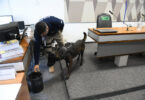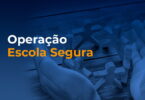Dr. Peter Tarlow, PH.D, Founder and President of Tourism & More
Dr. Peter E. Tarlow is a world-renowned speaker and expert specializing in the impact of crime and terrorism on the tourism industry, event and tourism risk management, and economic development. Since 1990, Tarlow has been teaching courses on tourism, crime & terrorism to police forces and security and tourism professionals throughout the world.
Tarlow earned his Ph.D. in sociology from Texas A&M University. He also holds degrees in history, in Spanish and Hebrew literatures, and in psychotherapy. In 1996, Tarlow became Hoover Dam's consultant for tourism development and security. In 1998, Tarlow's role at the Bureau of Reclamation expanded. He was asked to develop a tourism security program for all Bureau of Reclamation properties and visitor centers. Tarlow continued his involvement with the Bureau of Reclamation until December of 2012. In 1999, the US Customs service asked Tarlow to work with its agents in the area of customer service, cultural awareness, and custom's impact on the tourism and visitor industry.
In 2000, due to interagency cooperation on the part of the Bureau of Reclamation, Tarlow helped to prepare security and FBI agents for the Salt Lake City 2002 Winter Olympic Games. He also lectured for the 2010 Vancouver Olympic Games. Tarlow is currently working with police departments of the state of Rio de Janeiro for the 2014 World Cup Games and 2016 Olympic games.
In 2003, US National Park Service asked Tarlow to take on special assignments dealing with iconic security for its multiple tourism sites. Within the US government Tarlow has lectured for the Department of the Interior, for the Department of Justice (Bureau of Prisons and Office of US Attorneys-General), the Department of Homeland Security and the American Bar Association’s Latin America Office. Tarlow has worked with other US and international government agencies such as the US Park Service at the Statue of Liberty, The Smithsonian's Institution's Office of Protection Services, Philadelphia's Independence Hall and Liberty Bell and New York's Empire State Building. He has also worked with the Federal Bureau of Investigation, The Royal Canadian Mounted Police, and the United Nation's WTO (World Tourism Organization), the Center for Disease Control (Atlanta, Triangle Series), the Panama Canal Authority. He has taught members of national police forces such as the members of the US Supreme Court police, and the Smithsonian Museum’s police. He has also worked with numerous police forces throughout the United States, the Caribbean and Latin America.
In 2013 Tarlow was named the Special Envoy for the Chancellor of the Texas A&M University System. At almost the same time the US State Department asked him to lecture around the world on issues of tourism security and safety. In 2013, Tarlow began working with the Dominican Republic’s national tourism police, then called POLITUR, and as of 2014 called CESTUR.
Since 1992, Tarlow has been the chief organizer of multiple tourism conferences around the world, including the International Tourism Safety Conference in Las Vegas. Since 2006 he has also been part of the organizational teams for the Biannual Aruba Tourism Conference and has helped organize conferences in St. Kitts, Charleston (South Carolina), Bogota, Colombia, Panama City, and Curaçao. In starting in 2013, Tarlow became a co-organizer of the first and second Mediterranean Tourism Conference held in Croatia.
Tarlow's fluency in many languages enables him to speak throughout the world (United States, the Caribbean, Latin America, Europe, and Africa, and the Eastern Pacific, and Asia). Tarlow lectures on a wide range of current and future trends in the tourism industry, rural tourism economic development, the gaming industry, issues of crime and terrorism, the role of police departments in urban economic development, and international trade.
Tarlow has done extensive research on the relationship between tourism, crime, and terrorism. He also works with police forces to understand their constituents and provide the best customer service possible. Tarlow publishes extensively in these areas and writes numerous professional reports for US governmental agencies and for businesses throughout the world. He also functions as an expert witness in courts throughout the United States on matters concerning tourism security and safety, and issues of risk management.
Tarlow’s research ranges from the impact of school calendars on the tourism industries to tourism ecology and business. These research interests allow Tarlow to work with communities throughout the United States. He is teaches how communities can use their tourism as an economic development tool during difficult economic times, and at the same time improve their local residents’ quality of life.
Tarlow speaks throughout North and Latin America, the Middle East and Europe, and Asia. Some of the topics about which he speaks are: the sociology of terrorism, its impact on tourism security and risk management, the US government's role in post terrorism recovery, and how communities and businesses must face a major paradigm shift in the way they do business. Tarlow trains numerous police departments throughout the world in TOPPS (Tourism Oriented Policing and Protection Services) and offers certification in this area. Tarlow provides keynote speeches around the world on topics as diverse as dealing with economies in crisis to how beautification can become a major tool for economic recovery.
Tarlow is a well-known author in the field of tourism security. He is a contributing author to multiple books on tourism security, and has published numerous academic and applied research articles regarding issues of security including articles published in The Futurist, the Journal of Travel Research and Security Management. In 1999 Tarlow co-edited "War, Terrorism, and Tourism." a special edition of the Journal of Travel Research. In 2002 Tarlow published Event Risk Management and Safety (John Wiley & Sons). Tarlow also writes and speaks for major organizations such as the Organization of US State Dams, and The International Association of Event Managers. In 2011, Tarlow published: Twenty Years of Tourism Tidbits: The Book. The Spanish language addition is to be released in 2012. He has recently published a book on Cruise Safety (written in Portuguese) entitled Abordagem Multdisciplinar dos Cruzeiros Turísticos. In June of 2014, Elsevier published Tarlow’s newest book: Tourism Security: Strategies for Effective Managing Travel Risk and Safety. He is currently writing a new book on tourism sports security (to be published in late 2016) and a series of articles on the same topic for the American Society of Industrial Security.
Tarlow’s wide range of professional and scholarly articles includes articles on subjects such as: "dark tourism", theories of terrorism, and economic development through tourism. Tarlow also writes and publishes the popular on-line tourism newsletter Tourism Tidbits read by thousands of tourism and travel professionals around the world in its English, Spanish, and Portuguese language editions. Tarlow has been a regular contributor to the joint electronic tourism newsletter, ETRA, published jointly by Texas A&M University and the Canadian Tourism Commission. His articles often appear in a wide range of both trade and academic publications including Brilliant Results and Destination World.
Tarlow lectures at major universities around the world. Tarlow is a member of the Distance Learning Faculty of "The George Washington University" in Washington, DC. He is also an adjunct faculty member of Colorado State University and the Justice Institute of British Columbia (Vancouver, Canada) and a member of the graduate faculty of Guelph University in Ontario, Canada. Tarlow is an honorary professor at the Universidad de Especialidades Turisticas (Quito, Ecuador), of the Universidad de la Policía Federal (Buenos Aires, Argentina), la Universidad de Huánuco, Peru, and on the EDIT faculty at the University of Hawaii in Manoa, (O'ahu). At numerous other universities around the world Tarlow lectures on security issues, life safety issues, and event risk management. These universities include institutions in the United States, Latin America, Europe, the Pacific Islands, and the Middle East. In 2015 the Faculty of Medicine of Texas A&M University asked Tarlow to “translate” his tourism skills into practical courses for new physicians. As such he teaches courses in customer service, creative thinking and medical ethics at the Texas A&M medical school
Tarlow has appeared on national televised programs such as Dateline: NBC and on CNBC and is a regular guest on radio stations around the US. Tarlow organizes conferences around the world dealing with visitor safety and security issues and with the economic importance of tourism and tourism marketing. He also works with numerous cities, states, and foreign governments to improve their tourism products and to train their tourism security professionals.
Tarlow is a founder and president of Tourism & More Inc. (T&M). He is a past president of the Texas Chapter of the Travel and Tourism Research Association (TTRA). Tarlow is a member of the International Editorial Boards of "Turizam" published in Zagreb, Croatia, "Anatolia: International Journal of Tourism and Hospitality Research," published in Turkey, and "Estudios y Perspectivas en Turismo," published in Buenos Aires, Argentina, and American Journal of Tourism Research.







